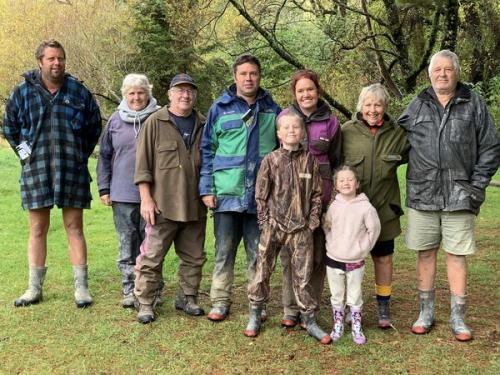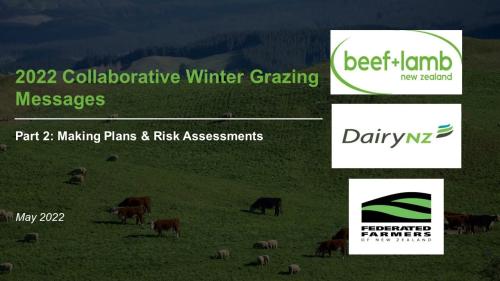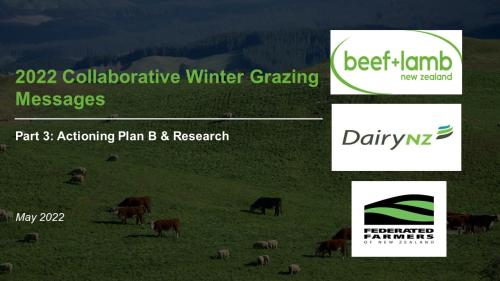Search results
Displaying 711 - 720 results of 1454
- Video… still remain the same for 2022. Careful planning for winter allows you to winter … between Beef + Lamb New Zealand, Federated Farmers, and Dairy NZ. Watch the full series …
- Video… still remain the same for 2022. Careful planning for winter allows you to winter … between Beef + Lamb New Zealand, Federated Farmers, and Dairy NZ. Watch the full series …
- News… Research jointly commissioned with Federated Farmers showed that the majority of New … emitters planting exotic trees on productive farmland. This coincided with the release of … was shared by 44 accounts including the NZ Farming Facebook page, which has over 238,000 …

- Podcast… San Jolly, a well-known farm consultant from Australia, talks about … 4 November 2015 Red Meat Profit Partnership Farm Management Conference Call. Comments …
- News… The current rules require farmers who graze livestock on an annual … to either gain a certified Freshwater Farm Plan, or to apply for a resource consent … New Zealand (B+LNZ), DairyNZ and Federated Farmers wrote to Minister David Parker in …

- News… barriers are not theoretical costs to farmers, but real concerns that need to be … of the New Zealand trade strategy. “With on-farm inflation almost double that of general CPI, and average farm profits in the sheep and beef sector …

- News… Mathew and Marilyn Prior of Aorangi Farm in Makuri were crowned the 2024 Property Brokers Tararua Sheep & Beef Farm Business of the year as part of the Tararua Excellence in Farming Awards. … Tararua farming award winners hard work pays off …

- Industry data… other key markets remain relatively weak farm profit before tax forecast decrease 31 per cent 202324 average 88600 per farm adjusting inflation lowest level farm profitability 15 years season farmers …
- News… Beef + Lamb New Zealand (B+LNZ) is calling on farmers from all regions to take part in the … picture of how facial eczema (FE) affects farms across New Zealand and your farm could help complete the puzzle. …

- Resource book… better match genetic measures commercial farmers needs 1 2 3 goals funding lnz genetics … importance different traits varies from farm farm breeding herds going focus different …

